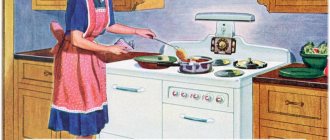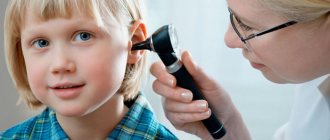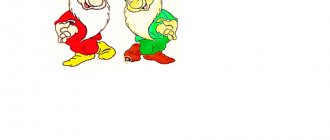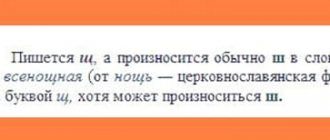Lesson summary Differentiation of sounds L – R
Subgroup lesson with children of the preparatory speech therapy group
Type of lesson: “Formation of correct sound pronunciation and preparation for
Lesson topic: “Differentiation of sounds “L” - “R”
Class participants: Children with imprisonment at the entrance to the speech therapy group
“General speech underdevelopment (3rd level of speech development)”,
dysarthric component. One child has intelligence
subnorm. End of the two-year correction period.
Lesson objectives:
Improve hearing and pronunciation differentiation of the sounds “L” - “R”.
Improve the skills of analytical and synthetic activities.
Improve the skill of pronouncing words of complex sound-syllable structure (isolated and in the context of a sentence).
Improve the skill of forming relative adjectives.
Continue learning how to make common sentences based on reference pictures.
Continue learning to recognize and differentiate the visual image of letters.
Develop mental processes.
Progress of the lesson:
– Guys, do you like cartoons about Smeshariki?
– Do you remember what their names are?
Today, not only adults, but also your favorite heroes came to our lesson. Who are they?
– Please name the first sound in the name of this Smesharik (“L” - Losyash).
– Please name the second sound in the name of this Smesharik (“R” - Krosh).
Today we will continue to train the correct pronunciation of these sounds.
Every sound has a letter.
Please find me the letter of the sound “L”, the letter of the sound “R”.
Let's give these letters to Losyash and Krosh.
Please tell me, are the sound and the letter the same thing or are they somehow different from each other?
Children remember the rule: “We see and write letters, but we hear and pronounce sounds.”
Please pronounce the sound "L". What is he like? (consonant, hard, voiced). When we pronounce it, what happens in our mouth? (the lips smile a little, the mouth is slightly open, the narrow tip of the tongue rises behind the upper front teeth).
Please say the sound "R". What is he like? (consonant, hard, voiced). When we pronounce it, what happens in our mouth? (the lips smile, the mouth is slightly open, the wide tip of the tongue rises behind the upper front teeth and trembles because we are blowing hard on it).
“Guys, Losyash and Krosh didn’t just come to visit us. They have prepared very interesting tasks for you.
First task: Look at the pictures, name them and determine what sound (“L” or “R”) is in the names of these pictures (CANCER, FISHERMAN, SLEEVE, MOSQUITO, COOK, GOAT, FOREHEAD, TORCH, BOW, DEN, MAGAZINE) .
Let's now make a magic chain from these pictures. The pictures - the den and the magazine - are removed, and from the rest, the children take turns laying out a chain in which each next word begins with the last sound of the previous word. Children comment on their actions: “In the word “CANCER” the last sound is “K”, which means the next picture will be “MOSQUITO”.
Magic chain: CANCER – MOSQUITO – FISHERMAN – GOAT – FOREHEAD (P) – COOK –
SLEEVE(F) – TORCH – BOW.
And now, I want to ask our distinguished guests to choose any four words from this chain, and you will make sound patterns of these words.
– Please offer a word for Lera, (for Grisha, for Tolik, for Nikita).
Two children lay out diagrams above the pictures, two under the pictures, determine the number of syllables.
Second task “Change the word”:
– I say the beginning of the word, and you think about what sound “R” or “L” this word should end with (axe, table, prick, fence)
– I say the end of the word, and you think about which sound “L” or “R” should come first (Lynx, Puddles, Work, Paw)
– Replace the sound “L” in the word with the sound “R”. What word will it be? (BAL - BAR, STING - HEAT, NEEDLE - GAME, POKA - SHELF)
Third task “Who has what?”:
Losyash and Kar-karych have friends - a boy and a girl. To find out their names, you need to determine the first sounds of the words that I pronounce and make a name from them (Rose, Donkey, Car, Orange - ROMA; Bear, Turkey, Onion, Pineapple - MILA).
Children have two pairs of pictures. Assignment: Roma loves objects with the sound “L”, and Mila loves objects with the sound “R”. Children attach pictures and comment on their actions: “Near Mila there is cancer, and near Roma there is varnish.” (varnish - crayfish, pilot - pie, spoons - horns, bench - frame, flag - tailcoat, goat - carpet, bowl - crumb, bun - box).
Fourth task “Tell me which one?”:
(formation of relative adjectives)
Tackle for fisherman - fishing tackle Foam mattress - foam mattress Resort for skiers - ski resort Barley porridge - pearl barley porridge Chocolate ice cream - chocolate ice cream Egg shell - eggshell Coral bracelet - coral bracelet Mother of pearl varnish - mother of pearl varnish Liner for passengers – passenger liner
Fifth task “Make a proposal”:
Children receive reference pictures: FISHER - BUCKET, CROCODILE - ZEBRA, MAGTY - WINGS, GIRL - MIRROR. Assignment: compose a sentence containing words with the sounds “L”, “R”. For example: A FISHER CAUGHT A WHOLE BUCKET OF FISH. A HUNGRY CROCODILE CATCHED AND EATED A ZEBRA. THE WHITE-SIDED MAGIE HAS TWO BLACK WINGS. THE GIRL DROPPED AND BROKEN THE MIRROR.
Sixth task “Fairytale”:
Losyash and Krosh love fairy tales very much. But when they were little and did not know how to pronounce the sounds “L” and “R” correctly, no one understood what kind of fairy tale they wanted to listen to. Can you guess?
“COOL HAT”, “SIVKA – BULKA”, “BOX”, “STING – BIRD”
Seventh task “Find out, write, read”:
– Guess which letters are hidden
– Arrange the letters according to height and read the word
The lesson has come to an end. The Smeshariki kids really liked how you did it. Now you can play with them.
Summary of correctional classes in the preparatory group. Differentiation of sounds [l]-[r]
Plan - summary of a speech therapy lesson on the topic “Differentiation of sounds [l] - [r]”
summary of a lesson on speech development in the preparatory group Objectives of the lesson: • clarify the articulation of sounds [l], [r];
• consolidate the correct pronunciation of sounds [l], [r]; • learn to distinguish these sounds by ear; • develop phonemic hearing, speech breathing, fine motor skills; • consolidate the ability to coordinate nouns with numerals. Progress of the lesson
Org. moment - Look carefully at the pictures. Today I will introduce you to my brother and sister – Lada and Roma. These children love to play, so they invite us to their place to play. “But before I go, I’ll tell you a secret.” Each of them has a favorite sound. And now you can guess which one for yourself. - Look at the pictures and name what is shown here. (Paw, boat, lily of the valley, moon, skis.) - What is the first sound in all the words mentioned? [l] - That's right, now look: (Rainbow, robot, lynx, hand, rocket) - What is the first sound in all these words? [r] That's right! - Which of the children do you think likes the sound [l] better? (Lada) Why? - Who likes the sound [r]? (To Roma) Why? “These children have prepared many interesting tasks for us.” — What sound does the girl’s name begin with? [l] - What sound does the boy’s name begin with? [p] - Today we will learn to distinguish between these two sounds. Main stage 1. Development of long speech exhalation. — To cope with all the tasks, we will perform breathing exercises. Game "Gluttonous Fruit" and "Cool the Tea". 2. Articulation gymnastics (based on pictures). - Now let’s train the tongue and do gymnastics. (We do it in cubes with pictures) 3. Clarification of articulation patterns . - Let's show Lada how we can “buzz.” Lips in a smiling position, the tip of the tongue rests on the upper teeth or cusps behind the upper teeth. The teeth are located close to each other. The air passes along the sides of the tongue. - Now, let’s “grow” for Roma. The tip of the tongue touches the cusps behind the upper teeth. The lateral edges of the tongue are pressed against the upper molars. The shape of the tongue resembles a spoon. The tip of the tongue trembles under the pressure of exhaled air. - Look at the picture. Run your finger along the line. When you go up, you need to make the sound of an airplane engine [r], and when you go down, you need to make the sound of a steamship [l]. Put your finger on the beginning of the journey.
4. Educational kinesiology exercises . — Ring — Fist — rib — palm — Ear-nose 5. Work at the word level. - Now let’s complete the next task. Game "Collect the letter." - Name the pictures that you see on these letters.
— Lada and Roma love to play together. Today they mixed up all their things again. Help the guys separate them. Lada's things begin with the sound [l], and Roma's things begin with the sound [r]. Place them in pockets for Lada and Roma.
— What things will Lada take for herself? (elk, horse, bow, boat, shovel). — What things will Roma take for himself? (horns, pen, fish, rocket, cancer). 6. Game “Magic Glade” - Now let’s rest a little and play the game. To recognize the word, you need to collect flowers. The flower is picked The syllable on it is read Collect flowers by color And make up words. Children collect flowers of the same color. Syllables are written on each flower, connecting them to read the words. 7. Work at the level of phrases. Game "Count" Our heroes have a lot of toys and they love to share them with their friends. Let's count how many toys Lada and Roma have. To make it easier for you to count, point your finger at the numbers. (one boat, two boats, ..., five boats)
8. Game "Magic Magnifying Glass". — Do you like magic tricks? Now I will show you one trick. Look carefully. — What color are all the pictures? (white) What if you look through a magic magnifying glass? (pink and green) - Name all the pictures through a magnifying glass. For example, a green drum, green balls, a pink ribbon, a pink bench. 9. Work at the sentence level. - Look at the pictures Lada and Roma drew. Try to come up with interesting proposals for them. For example: milk cow. The cow gives milk. (A fish swims in a pond. A bee sits on a daisy. The samovar is placed on the table)
10. Game "Snowballs". Dysgraphia prevention. — Do you like to play snowballs in winter? - And now we have snowballs. - Take each lump and unfold it (a crumpled piece of paper with unfinished letters). What's there? The letters are correct, but they are not finished. Take your pens and add one element to make a letter.
Well done! You did a good job with such a difficult task. Lesson summary : What sounds did we play with today? [l] and [r] - Let’s remember 2 words each that have the sound [l] and the sound [r]. “You make friends with these sounds and get medals for it.” Well done!
We recommend watching:
Summary of a lesson on speech development in the preparatory group. Summary of a lesson on speech development in the preparatory group. Summary of a lesson on speech development in the preparatory class of a correctional school of the VIII type. Summary of a lesson on speech development and familiarization with the environment in the preparatory group on the topic “Who
Similar articles:
Summary of the lesson “Take care of nature” in the preparatory group
Lesson summary “Differentiation of R-L sounds, Journey into a fairy tale - Cinderella”
Summary of a literacy lesson (preparatory speech therapy group)
Topic: “Differentiation of R-L sounds. Journey into a fairy tale - Cinderella."
Goals:
1. Learn to differentiate the sounds “R-L”
2. Practice forming complex (two-root) words.
3. Practice writing sentences – deformed phrases.
4. Development of coherent speech.
5. Development of phonemic hearing, sound analysis and synthesis.
Game material:
painting “Cinderella”, cards with syllables, words, sentences; chips; split alphabet; subject pictures, sentence diagrams; module "proverb".
Progress of the lesson: 1 Organizational moment. Game "Politeness and Rudeness".
Once upon a time there were girls. One was polite and affectionate, the other two were rude. The speech therapist schematically draws three faces: a smiling one and two dissatisfied ones. Now you will take turns saying your names, and we will find out how polite and rude girls pronounced them.
Olya - Olenka - Olka, Galya - Pebble - Pebble, Valya - Valechka - Valka, Tolya - Tolechka - Tolka, Kolya - Kolenka - Kolka, Ulya - Ulechka - Ulka, Julia - Yulenka - Yulka, Elya - Elechka - Elka, Polya - Polish - Polka.
Today in class we will go on a trip. Where we will go - you try to guess for yourself. The teacher shows the children a card with the letters: K Z I A S K. The numbers are written under the letters: 2, 4, 6, 3, 1, 5. The children guess the word: fairy tale. On this journey we will meet polite and rude heroes. Guess what fairy tale awaits us: The girl ran away from the prince so quickly,
That she even lost her shoe. (Cinderella).
Tell me, who is Cinderella? Why was she called that?
2. Game “Let’s tell you what Cinderella was like?” (formation of complex words).
Cinderella had blue eyes - she is blue-eyed; blonde hair - she is blonde; Black eyebrows - she is black-browed; she has a white face - she is white-faced; a kind soul - she is good-natured; kind heart - she is kind hearted. She always loved peace, never quarreled - she is peace-loving; She has always worked - she is a hard worker.
What kind of work did Cinderella do? Tell me the right words. Cinderella floors (soaped, swept, wiped, scraped), stove (heated), dinner (cooked, cooked), linen (washed, rinsed, ironed), beds (weeded), dishes (soaped, cleaned). How are these words similar? (they end in the syllable – la).
Who did Cinderella live with? (with stepmother and two sisters). What did Cinderella's sisters do?
3. Speech motor training.
Look in the mirror (Children make a large imaginary oval with their hands)
Cinderella's sisters. (Slightly turn your head left and right)
They put it on in the morning (circular movements with hands around the neck to the middle of the chest)
Beads with mother of pearl. (Stroking movements with both hands at the “bead” level)
Let's say the word again: mother of pearl. What sound does this word end with? (R). What sound is in the middle of the word? (L).
Today in class we will distinguish the sounds “R-L”. Pronunciation and characteristics of sounds.
4. Speech warm-up.
Ri-li-ri - the lights came on.
Lo-ro-lo - it’s light in a dark room.
Ly-ry-ly - Cinderella washes the floors.
5 . Physical exercise.
Until evening (raise your hands, slowly lower them down)
Cinderella washed the floors. (Lean forward, swinging movements with both arms back and forth)
And when I cleaned up (wipe the sweat from my forehead).
She sat down and drank some tea. (Squat down and imitate drinking tea).
6. Didactic game “What’s around?”
On the children’s tables there are object pictures laid out: spoon – fork – plate – glass – salad bowl. Children say: “Near the spoon there is a fork, near the fork there is a spoon and a plate, near the plate there is a fork and a glass, near the glass there is a plate and a salad bowl, near the salad bowl there is a glass.”
7. Didactic game “Replace the sound “R” in the word with the sound “L”.
Laying out a word from the letters of the split alphabet. Sound-letter analysis of words.
The teacher gives the children cards with words starting with the sound “R”. Children replace the sound “R” with the sound “L”. Then they lay out the word and identify the sounds using chips.
Words: peace - sweet, gift - gave, game - needle, old - became, hot - pity, cancer - varnish, glad - well, horns - spoons, feast - drank, rye - lie.
8. Composing words from mixed up syllables. Reading words.
Magic words are written on the cards. Guess the words by swapping the syllables. TSA-VOL-NI-SHEB - sorceress, KA - PA - LOCH - wand, RE - Ta - Ka - carriage, KAY - LA - footman, VA - RO - LE - KO - queen.
9. Writing sentences - deformed phrase
. Words are written on the cards, and children make up sentences from the words: The sorceress sent Cinderella to the garden. Cinderella picked a big pumpkin. The sorceress turned the pumpkin into a carriage. The sorceress turned the mice into horses. The sorceress turned the lizards into servants. The sorceress turned Cinderella's dress into a snow-white outfit. Cinderella went to the ball in a carriage. Cinderella danced with the prince at the ball.
10 Guessing the proverb by the first sounds: “Patience and work will grind everything down.” (Module with subject pictures).
11. Lesson summary:
Where do good and evil come from? From the human heart. What is stronger: good or evil? Good is always stronger.
Remember the magic words: Kindness and beauty are your best features.




